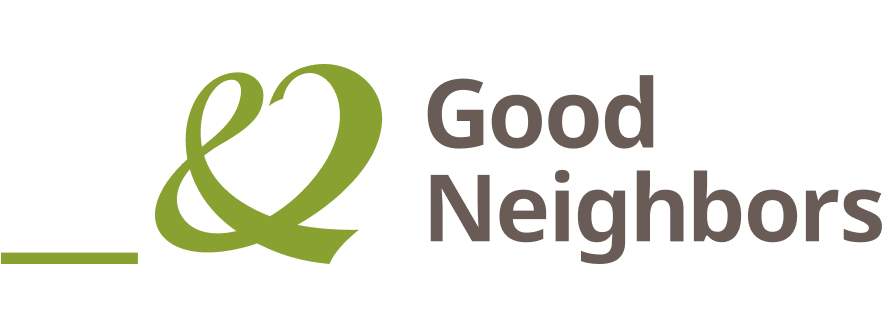
Good Neighbors began its work in Bangladesh in August 1996 with the aim of improving the lives of children, women, and youths, and making good change for the world.
Initially, our focus was on meeting the needs of disadvantaged children by establishing daycare centers, schools, and hostels. These programs served 154 children from poor families in Moulvibazar and ensured their safety, security, and health. In the subsequent year, we launched the Mother and Baby Care Center in Dhaka for pre-primary education and an agriculture project in Sirajganj, introducing the self-help group model for women’s savings. Later, we expanded our focus to include vulnerable children through our sponsorship program, providing services in education, health, and income generation as part of our long-term community development initiatives.
Currently, Good Neighbors Bangladesh is active in 13 districts with 17 community development projects and 5 projects addressing specific needs. We also continue operating six schools directly. Each year, we mobilize approximately 60,000 children, 29,000 women, 2,000 volunteers, and 300 Community Health Workers (CHW).
We have established long-term partnerships with organizations such as the UN World Food Programme (WFP), UNICEF, the Ministry of Foreign Affairs of Japan, and the Embassy of Japan in Bangladesh, focusing on disaster risk reduction and climate change projects. We have also collaborated with Australian Aid and the Korea International Cooperation Agency (KOICA).
Good Neighbors Bangladesh empowers communities by fostering environmental sustainability, education and protection, public health, and livelihood opportunities. Our strategic objectives include establishing community-centric, resilient approaches for disaster risk reduction and climate change, promoting quality education and child rights through inclusive community engagement, advancing community health through accessible public health services and community empowerment, and enhancing community livelihood opportunities through women’s entrepreneurship.
We work for children, women, and youth, ensuring their involvement in the planning and implementation stages. Our strategic focus areas are:
Good Neighbors Bangladesh constantly expands its efforts to achieve the Sustainable Development Goals (SDGs). The organization has contributed to 12 of the 17 goals (SDGs 1, 2, 3, 4, 5, 6, 8, 9, 10, 13, 16, 17), focusing on SDG 3 (Good Health and Well-being), SDG 4 (Quality Education), SDG 5 (Gender Equality), SDG 13 (Climate Action), and SDG 17 (Partnerships for the Goals).
Good Neighbors is a global NGO dedicated to improving the lives of children and communities in over 50 countries.
Good Neighbors has held a General Consultative Status to the United Nations Economic and Social Council (ECOSOC) since 1996.
